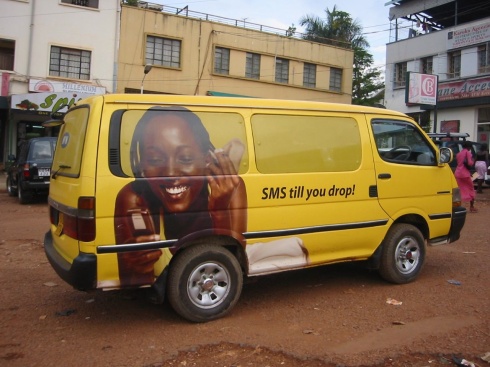Standing in the baking sun on a north London High Street for six hours might not sound like your idea of cutting edge election coverage, but it was one of the most well received pieces of journalism that I have witnessed in this campaign.
Armed with little more than a bottle of water, some hastily purchased sun cream and a stack of red, yellow, blue and green pieces of paper we were carrying out an election poll for the seat of Hornsey and Wood Green.

Hampstead and Highgate Express
After minutes we realised that we weren’t going to have to fight hard to encourage local voters to make their voices heard. These were the normal people on the street out buying their weekly shop or popping into the post office. They hadn’t joined a facebook group to show their disdain for Gordon Brown or commented on a spoof Tory Youtube video but we quicky got the distinct feeling they would have done if they were a little more Facebook savvy.
There was frustration on the streets which led to people coming up to our stall uninvited, asking questions and writing mini-essays explaining the causes of their alienation.
One man who told me how he had fought and been injured in WW2, how he had watch his commander, an old man at 26 die 10 days before the end of the war. He is 83 now and he was going to spoil his ballot. Why? A lifelong labour voter he feels betrayed on a national scale and alienated on a local level. The worst offence, he said was the letter he received on his 80th birthday telling him his pension was to be increased. By 25p a week.
Another woman told us that national politics held no sway over her anymore. They, she said, were career politicians interested in lining their politics and hiding their policies. She was voting simply on what her local candidates had to offer. Lynne Featherstone, the incumbent Lib Dem MP, is well regarded here, and this lady was no exception to this opinion.
She has been a good candidate fighting hard for local issues and bringing them to national attention when necessary. An expenses ‘saint’ she also held a lot of sway in terms of morality. The fact that she is the daughter of a millionaire and not exactly poorly off herself was never mentioned – it seems that there is not so much anger at people being over-paid or over-privilege but simply about the lack of honesty over that payment.
After four hours we had amassed almost 200 votes just from passersby. The ‘ballots’ were covered with scrawls of ‘change needed’ and ‘time for change’ suggested the locals were not immune from the national message being thrust down their throats. But hearteningly there were also comments that showed a real interest in national and local policies and in how these party’s would address their personal needs.
Four first time voters gave me a rush of pride in our long tradition of youthful social conscience. They said that they could see how Labour had made mistakes but expressed a belief that they couldn’t vote any other way than red. They believed in equality and in continued investment in the National Health Service, in education and in those struggling out of poverty. They said they knew that Conservatives would not provide this, no matter how friendly Cameron appeared to be.
That long sunny wait on a busy pavement showed me how important the local paper can be for empowering local voters. We could sense the gratitude people felt at the paper giving them a voice on local issues. Their willingness to speak out highlighted that, despite the shift towards US presidential politics, it was the response of their local MP to their struggles that really mattered in the long term. But these people do not want their worries exploited by the leaders as anecdotes for ping-pong TV rallies. The voters want to be listened to by their local candidates and for their local papers to make them heard.
Indeed the local parties would do well to read through our final cardboard box of ‘votes.’ It would tell them more about the state of mind of their constituents than any YouGov poll for utterly unbiased Sky News ever will.
UPDATE – I now work for Ham&High as a reporter but when I wrote this I was a lowly work experience with no renumeration. Flattery, it seems, will get you anywhere!

